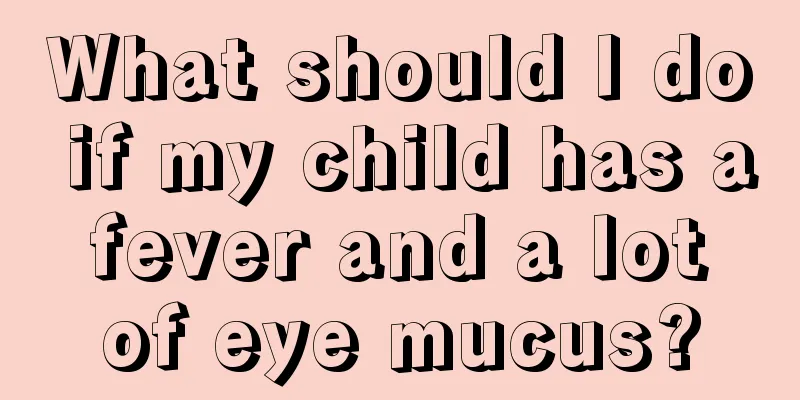What to eat when your baby is teething

|
Mothers are always paying attention to the physical changes of their babies, and are particularly concerned about every bit of their babies' physical development. Therefore, many mothers pay attention to how to best match the food their babies eat. For example, when they find that their children have begun to grow teeth, parents start to feed their children complementary foods immediately. In fact, considering the special physical conditions of babies, different training methods need to be used at different stages. What foods are good for babies to eat when they are teething? What food is good for babies to eat when they are teething also varies according to the different stages of teething in the baby. The general teething diet for babies is to eat semi-solid food during the 2-tooth period, increase nutrients during the 4-tooth period, and eat some solid food during the 6-8-tooth period. 1, 2 tooth stage Generally, a pair of deciduous central incisors on the baby's lower jaw will quietly erupt when the baby is 4-8 months old, and from then on the baby is no longer a toothless baby. Babies at this stage like to put anything they can get into their mouths and chew it, which makes people laugh and cry. Sometimes they will even imitate adults' actions and chew chopsticks and spoons. During this period, mothers can try to give their babies some semi-solid foods, such as mashed potatoes, egg yolk puree, oatmeal porridge, etc., so that the baby can experience the transition from watery diet to paste-like diet. Complementary foods with a slight consistency can make the baby aware that his food is beginning to change, laying the foundation for adding solid foods in the future to allow the baby to practice chewing with his teeth. 2nd and 4th tooth stage Around 8-12 months, two or more teeth will grow on the baby's upper jaw. At this time, the baby's nutritional needs are getting higher and higher. During this period, the mother should give the baby more choices, such as pureed meat, minced meat, tomatoes, tofu, etc. However, if the baby has poor chewing ability and weak digestive function, the nutrients in the food will not be easily decomposed and utilized without being crushed by the teeth before entering the digestive system. Therefore, parents should consciously use solid food to guide their babies to practice chewing during this period. 3. 6-8 teeth stage The baby's upper lateral incisors will erupt when the baby is 9-13 months old, and the lower lateral incisors will also erupt when the baby is 10-16 months old. During this period, the baby begins to slowly adapt to solid food, and the digestive function of the stomach and intestines gradually matures. During this period, mothers can give their babies solid food, such as boiled eggs, vegetables, etc. 4. 8-12 teeth Around 13-19 months, your baby will have his first deciduous molars (molars). With the presence of deciduous molars, the baby's chewing ability is greatly improved. During this period, the baby will be very enthusiastic to use a spoon to put food into his mouth. Even if he eats all over the table, it is worth encouraging the mother. This will also have an impact on the baby's future personality. During this period, you can reduce the intake of liquid food and increase the intake of solid food, such as soft rice, bread, vegetables, meat slices, etc. 5. 12-20 teeth During the 16th to 20th month, the baby's 20 deciduous teeth gradually grow in, completing the entire eruption process of the deciduous teeth series. During this period, the baby can not only swallow food by himself, but also his feeding skills are gradually becoming perfect. The mother can give him ordinary slightly softer food, such as rice, noodles, soybeans, etc. 6. Eruption of permanent teeth When the baby is about six or seven years old, permanent buds begin to erupt and replace the original deciduous teeth. As the baby grows older, he should be allowed to eat more chewy foods such as jellyfish, peanuts, and sugar cane to maintain a good stimulation effect on the deciduous teeth and promote the deciduous teeth to fall out on time. When the baby's incisors and molars have erupted, you can add some celery, corn, apples and other foods to help the tooth replacement go smoothly and give the baby a healthy and neat set of teeth. |
<<: Children's finger and toe nails itching
>>: What to eat if baby has hard stool
Recommend
Why are there obvious blood vessels in my baby’s eyelids?
The skin of very young babies is very thin and de...
Baby's runny nose after fever subsides
Since children are still growing, their resistanc...
How should colic in children be treated?
Although baby colic is not a disease, if a baby h...
What is the rehabilitation treatment for cerebral palsy in children?
Nowadays, there are often reports on TV programs ...
Is it good for children to use millet pillows?
Sleep quality is an issue that people attach grea...
How to disinfect and care for the navel of a newborn
The fetus is in the mother's womb, connected ...
Why does infantile rash occur?
Many babies suffer from roseola when they are bor...
What are the dangers of using cough plaster on children?
When a child has symptoms of coughing, parents of...
Which department should I go to if my child sweats too much?
Children are lively and active and sweat easily. ...
Is it okay for babies to drink rock sugar and pear water?
Nowadays, many young parents often give their bab...
What are the symptoms of calcium deficiency in a seven-month-old baby?
In fact, many times you need to pay great attenti...
Umbilical cord bleeding
Under normal circumstances, the baby's umbili...
Why does my child always feel dizzy?
Nowadays, many families have only one child. Alth...
What is normal vision?
Check whether your eyesight is normal, and see ho...
What to do if your left eye is amblyopia
0~5 years old is the critical period for vision d...









